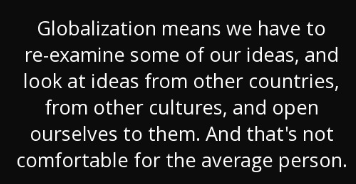Phil Gov: Political Power
1/29
There's no tags or description
Looks like no tags are added yet.
Name | Mastery | Learn | Test | Matching | Spaced | Call with Kai |
|---|
No analytics yet
Send a link to your students to track their progress
30 Terms
Lord Acton
“All power tends to corrupt and absolute power corrupts absolutely“
Walter Annenberg
The greatest power is no money power, but political power
“It is not power that corrupts but fear. Fear of losing power corrupts those who wield it and fear of the scourge of power corrupts those who are subject to it.“
Aung San Suu Kyi
Politics
the process of determining who gets what, when and how
Power
the ability to control the behavior of others, even against their will
Authority
is institunalized power, whose exercise is governed by the norms and statuses of organizations
Politics as power
‘politics is at the heart of all collective social activity, formal and informal, public and private, in all human groups, institutions and societies‘
COMPULSORY
Direct control over others
EX: Military Intervention Sanctions
INSTITUTIONAL
Rules and procedures shape behavior
EX: UN, WTO, IMF
STRUCTURAL
Positions in social structures define capacities
EX: Core vs. periphery economies
PRODUCTIVE
Creation of meaning, norms, identities
EX: Human rights discourse, labeling “terrorists”
Monarchy
one - ‘true‘ (common interest)
Aristocracy
few - ‘true‘ (common interest)
Polity
many - ‘true‘ (common interest)
Tyranny
one - ‘despotic‘ (selfish interest)
Oligarchy
few - ‘despotic‘ (selfish interest)
Democracy
many - ‘despotic‘ (selfish interest)
Herbie Hancock

State defined as by Aristotle:
the state is a union of families and villages having for its ends a perfect self sufficing life by which we mean a happy and honourable life
State defined as by Bluntschli:
state is a politically organised people of a definite territory
State defined as by Woodrow Wilson:
people organised for law within a definite territory
State defined as by Garner:
the stare is a community or persons, more or less numerous, permanently occupying a definite portion of territory, independent (or nearly so) of external control and possessing an organised government to which the great body of inhabitants render habitual obedience
State
community of persons, permanently occupying a definite portion of territory, having a government of their own and enjoying freedom from external control
independent political entity with clear geographoc bounderies
Elements of the state
people
territory
government
sovereignty
People
mass of population living within the state
Territory
fixed portion of the surface of the earth inhabited by the people of the state
Government
agency through which the will of the state is formulated, expressed and carried out
Sovereignty
the supreme power of the state to command and enforce obedience
Nation
the people, created by a shared belief that the people inside a country are connected to each other
a large population that shares the same culture, language, traditions, history…
Globalization
process by which different parts of the world interact economically, politically and culturally